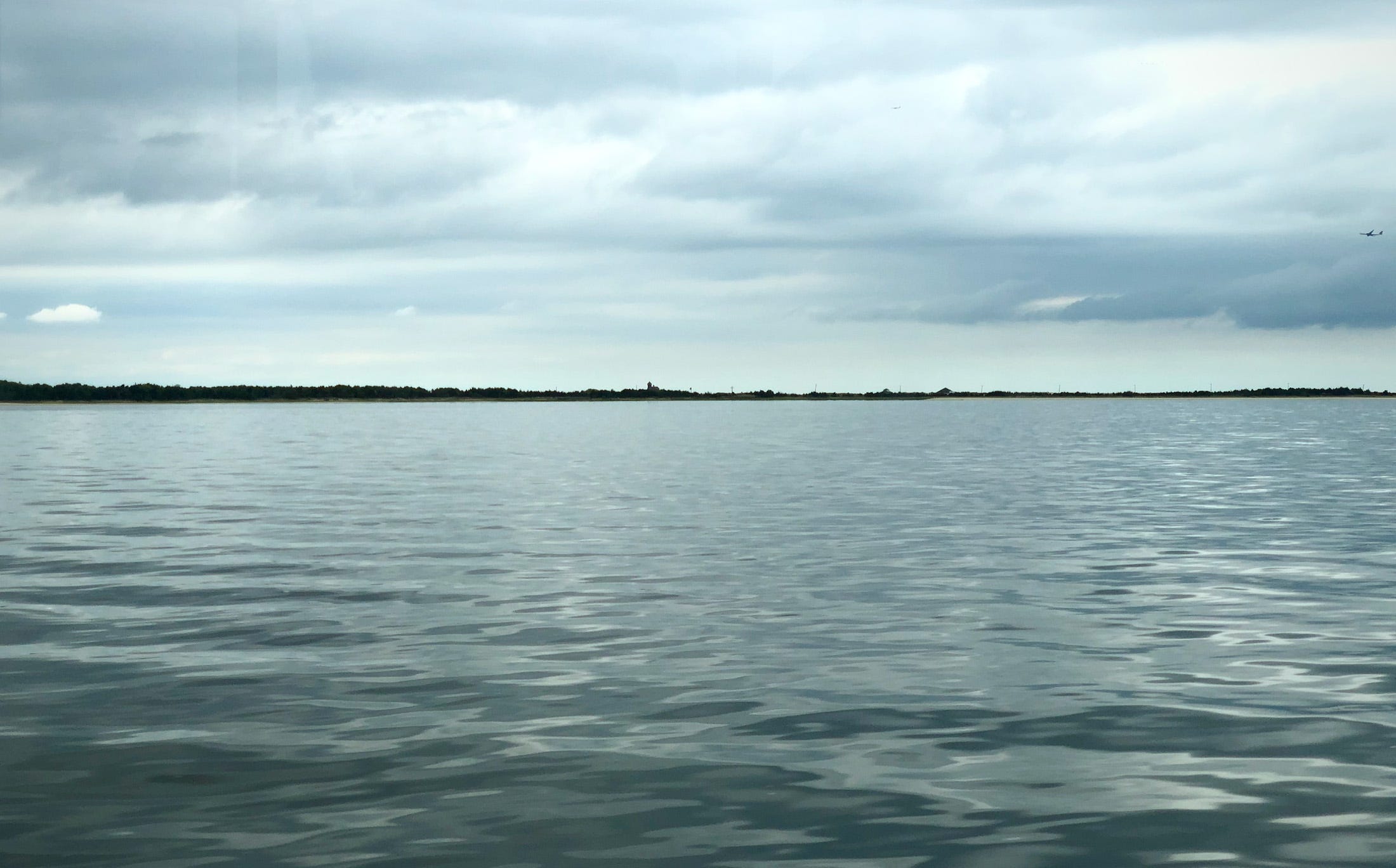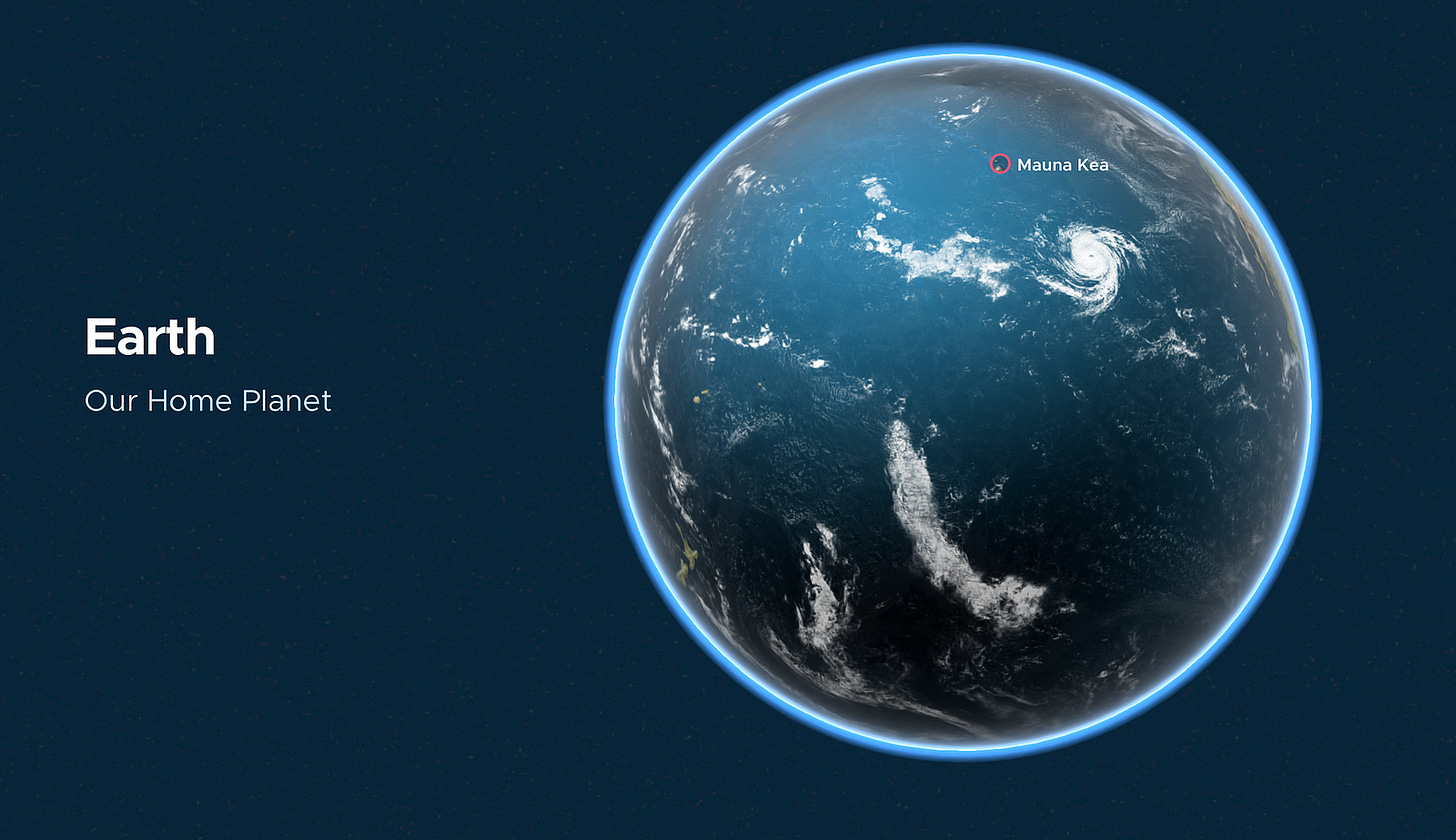Ocean health defines human experience
It is easy to take for granted all that the global ocean does to sustain life, but we cannot afford to overlook the ways in which our behavior undermines ocean systems.
The global ocean makes up 99% of the biosphere, absorbs 90% of excess heat coming into the Earth system, anchors the stable climate system and the food web, and shapes the land and ecosystems we inhabit. We live on an ocean world, and though our diverse global civilization is land-based, human existence itself depends on a healthy ocean.

The Resilience Intel initiative emerged from the Acceleration Dialogues — in response to leaders in all sectors sharing a common need: for information related to decision-making to be informed by science, and for mainstream finance to “know how” to align with that information. The initiative is focused on direct integration of Earth systems science data into financial data systems, to produce an overall translatable measure of “resilience value”.
The more your actions build resilience for other stakeholders, the more valuable your actions are; the more they degrade resilience, the more investors will want to avoid them. The underlying reality of the world works this way; ecosystems leverage this integrated multi-centered value-building to achieve health and resilience, but much of the data we use to drive investment decisions operate as if no such wider integrative foundation for value existed.
We cannot sweep pollution under the rug. Pollution does not “go away”; there is no “away”. The effects of unsustainable practices end up eventually running down to the ocean, where they degrade the vibrancy of marine ecosystems and ocean biomass — degrading both the food web and the carbon sinking capacity of the ocean.
Protecting ocean ecosystems
On Saturday, March 4, at United Nations Headquarters in New York, two decades of negotiations culminated in the first global agreement to protect and conserve biological diversity in areas beyond national jurisdiction (BBNJ). Without this new BBNJ Agreement — also known as the High Seas Treaty, or Ocean Biodiversity Treaty — it would not have been legally or practically feasible to achieve the goal of the new Global Biodiversity Framework, agreed in Montreal in December 2022, which calls for protecting 30% of both land-based and marine ecosystems by 2030.

In 2019, Acceleration Dialogues partners hosted a discussion at the Oceanographic Institute of Monaco. That dialogue focused on the ways in which upstream activities lead to downstream impacts. Participants came together around a core idea: “blue economy” investments must include investments across the whole economy that will impact the ocean downstream.
Value upstream-downstream interactions
In June 2019, we published Invest at the Source, a brief pointing to 10 “zero goals” for ocean neutrality — because you cannot balance harm to the ocean against an offsetting benefit; the net outcome is still harm. Those ten areas where harm must be reduced to zero to achieve ocean neutrality are:
Plastic waste
Ocean acidification
Thermal absorption and expansion
Sea level rise
Disruption of ocean currents
Chemical agricultural runoff
Coral bleaching
Sonic trauma
Accelerated extinction
Sea-floor methane disruption
We then outlined areas of action to focus in on strategies for working toward those zero goals. If we see a substantial shift toward
Waste management
Infrastructure design and urbanization
Agriculture and land use
Ecosystem stewardship
Chemical processing and refining
Manufacturing
Energy production
Transportation
Finance, investment, and trade
We need to see substantial, measurable, and foundational progress toward ocean neutrality on each of these. Today, we want to focus on this insight from the report:
The list is bookended by Waste Management and Finance — in part because reading the ocean signal reveals powerful connections between the two and points to business-model innovations we must learn to harness for transformational benefit. We treat the field of waste management as something very different from finance — physical labor vs. data management and bookkeeping, low-income vs. high-income — but the shift to circular economy standards and practices will connect them in important ways. Waste management and finance will be redefined as two modes of a shared project: a resource management industry that in different ways, at different scales, aims to leverage presently accessible foundations of value to achieve specific enhancements of future prosperity.
In April 2021, Geoversiv supported the Global Freshwaters Summit, which focused on the common and varied interests of stakeholders across the vast Missouri and Mississippi Watershed. The Summit took stock of the health of the great rivers, and of streams, tributaries, and ecosystems. And, participants spoke about their experience of pollution and clean-up, and the deep entanglement of upstream and downstream interests.
Efforts like the Mississippi River Cities and Towns Initiative (MRCTI) bring communities together across the watershed, to examine shared challenges and connections between upstream behaviors and downstream outcomes. The aim is to build capacity for local leaders to foster green investment and innovation and sustainable economies that value the ecological health of the River and the surrounding environment.
Resilience Intel views watershed resilience — not just management, but the wider question of the health and resilience of natural systems, climate stability, the sustainability of mountain glaciers above the headwaters — as crucial to understanding resilience value. Resilience value is a general term for an integrated multidimensional metric that provides actionable insight into activities that lead to good outcomes for people and nature, while also consolidating the foundations of economic wellbeing.
Ocean-food system connections
The future of food, agriculture, energy, and finance, must support ocean health and resilience, if we are to achieve sustainable development. Ignoring this reality makes it far more likely we make decisions about land-based activities that exacerbate systemic risks. Unsustainable development is not an option — as the risk of catastrophic system-level (or multi-system) resilience failure is rising.
Livelihoods must increasingly be supported by coordinated investment in natural system health and resilience, or Nature-based solutions.
The “blue economy” must expand to include many apparently non-ocean actions that take place far upstream.
We must think beyond even the Summit-to-Sea mindset, and remind ourselves that climate disruption generated by “downstream” actors can destabilize mountain glaciers and entire watersheds.
The circular economy is not an artificial construct; it is a recognition of the actual, real-world interconnectedness of human and natural systems.
The 2020s must be the decade when we set the global economy on a clear course to operate in harmony with Nature. To achieve food and water security, safeguard human health, and achieve sustainable shared prosperity, we will need to invest in and routinely foster climate resilience, biodiversity, and the health and resilience of ecosystems on land and in the ocean.
De-marginalize people and nature
The Principles for Reinventing Prosperity emerged from a process of consultation with stakeholders and climate organizers dealing with deep local disruptions from the COVID pandemic throughout 2020. The Principles consider the material interests of people, Nature, and whole societies, to inform sustainable development and investment, and secure a livable future. Ocean health and resilience is part of that.
The 2022 Reinventing Prosperity Report focused on a ‘Capital to Communities’ approach to designing and deploying sustainability-oriented policy and investment. It is a recognition that an integrated and holistic approach to ocean, climate, nature, food, health, and overall human and societal wellbeing requires insight into how people live, what they aspire to, and how they can leverage local experience to drive change.
Whether we can build Main Street local economies that serve everyday needs reliably and affordably, whether we can sustain the security of nations large and small, ultimately depends on whether the ocean — both in coastal areas and in the remote deep ocean — is able to do for the Earth system what living oceans do.
Read the Invest at the Source report at OceanSmart.org
An earlier version of this article was published for World Ocean Day on June 8, 2021, at Earthintel.org




